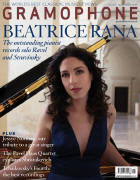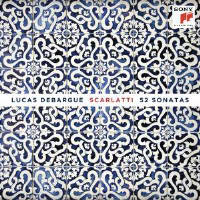Texte paru dans: / Appeared in: |
|
|
Outil de traduction (Très approximatif) |
|
|
Reviewer:
Patrick Rucker One of the joys of this generous set is the expressive clarity of Debargue’s piano sound, unclouded by pedal. The sonatas are well chosen and thoughtfully arranged, 13 to a disc, each disc conceived as a wellrounded mini-recital. Debargue plays virtually all the repeats, occasionally slightly embellishing them the second time through. To Debargue’s great credit, each of these 52 sonatas emerges with a uniquely distinctive character and, despite the similarity of their formal layout, attention never flags. Among the more brilliant sonatas – the two D major sonatas, Kk45 and Kk414, G major Kk125 or F major Kk469, for instance – Debargue’s speed and bravura are delivered with extraordinary clarity and lightness of touch. The most intricate figurations never sound notey, but speak with stylish eloquence. He relishes Scarlatti’s frequent juxtapositions of contrasting affects, as in the A major Kk268, where insistent dissonance interrupts frolicsome joy, or when flamenco-like strumming obtrudes in the otherwise genteel and witty G major Kk105, or the mercurial shifts of mood in C minor Kk115. The evocations of grand processions laced with fanfares so beloved of Scarlatti, among them C major Kk242, G major Kk491 and C major Kk461, are always proportionate and, for all their exuberance, maintain a haughty Spanish dignity. In the more lyrical sonatas, such as the tender longing of D major Kk543, the touching simplicity of F minor Kk462 or the haunting Moorish-inflected C sharp minor Kk247, Debargue’s beautifully chaste cantabile takes flight. I will confess that, despite Debargue’s unquestionable gifts, there have been elements of his interpretation in previous recordings that struck me as unsettled and confused. Here, I am happy to report, he sounds both completely on top of his game and staking out new interpretative territory with confident mastery. By any measure, this is an ambitious project, handsomely realised. |
|




